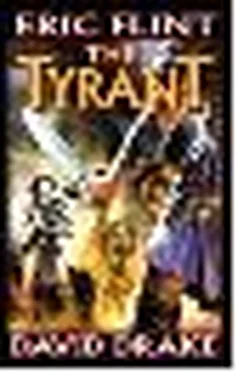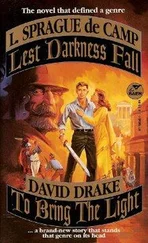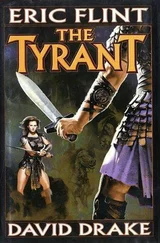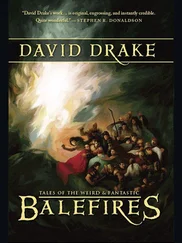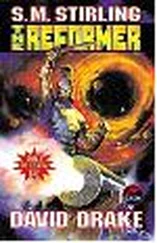David Drake - Tyrant
Здесь есть возможность читать онлайн «David Drake - Tyrant» весь текст электронной книги совершенно бесплатно (целиком полную версию без сокращений). В некоторых случаях можно слушать аудио, скачать через торрент в формате fb2 и присутствует краткое содержание. Жанр: Боевая фантастика, на английском языке. Описание произведения, (предисловие) а так же отзывы посетителей доступны на портале библиотеки ЛибКат.
- Название:Tyrant
- Автор:
- Жанр:
- Год:неизвестен
- ISBN:нет данных
- Рейтинг книги:5 / 5. Голосов: 1
-
Избранное:Добавить в избранное
- Отзывы:
-
Ваша оценка:
- 100
- 1
- 2
- 3
- 4
- 5
Tyrant: краткое содержание, описание и аннотация
Предлагаем к чтению аннотацию, описание, краткое содержание или предисловие (зависит от того, что написал сам автор книги «Tyrant»). Если вы не нашли необходимую информацию о книге — напишите в комментариях, мы постараемся отыскать её.
Tyrant — читать онлайн бесплатно полную книгу (весь текст) целиком
Ниже представлен текст книги, разбитый по страницам. Система сохранения места последней прочитанной страницы, позволяет с удобством читать онлайн бесплатно книгу «Tyrant», без необходимости каждый раз заново искать на чём Вы остановились. Поставьте закладку, и сможете в любой момент перейти на страницу, на которой закончили чтение.
Интервал:
Закладка:
"There's really not much that I need to do in the way of preparation. A few days, no more." She chucked the baby softly under his chin. "And he'll need even less. Logistics is simple at his age. Where the tits go, he goes."
"True enough," chuckled Demansk. After a moment, the humor faded. "You'll probably need to comfort Lissel a bit, once the news hits. Which probably won't take long," he added sourly, "knowing Barrett. I'll be seeing him on my way to Preble."
" 'Probably?' " jeered Helga. "No 'probable' about it, Father. The minute Barrett learns he's got a better offer in the making, he'll march into Lissel's rooms and tell her to start packing. You watch — you'll probably even still be there when it happens."
Demansk didn't argue the point. His eldest son was. . not a man he much liked.
Helga was scowling now. "And Lissel will come here straight off, wailing like a babe herself. I'll keep two laundresses busy for a week, just washing the tear-soaked linens."
Her father grimaced. "Do you really think she'll be that upset? It never struck me that there was much affection in the marriage."
"Heh. There isn't any, Father. And what's that got to do with anything? Lissel is a sweet enough girl, but she's got the brains of a. . oh, hell, even pigs are smarter. She's a Vanbert gentry daughter, through and through. Never had an original thought in her brain. For someone of her class, a marriage to a Demansk meant a major leap in status. Being divorced will devastate her. It's got nothing to do with Barrett. "
Demansk sighed. "I'll see to it she's well taken care of. Financially, I mean."
Helga shrugged. "She'll survive. And, within a year, be deluged with other marriage proposals. From other gentry, of course, not real noblemen. The combination of her former marital status and a big dowry will be irresistible to that lot." A moment later, grudgingly, she added: "Well, some of them."
Demansk thought his daughter was being a bit uncharitable. He had a higher opinion of the gentry than she did. He'd had more contact with them, for one thing, and on this subject Helga's own unthinking prejudices were peeking through. Whatever the gentry's faults as a class, Demansk had found many of them to be quite admirable as individuals.
The upper class of the Confederacy fell, broadly speaking, into three categories:
At the top, the real nobility of the ancient, great families. All of whom were giant landowners and either stinking rich or up to their eyeballs in debt. This class provided the Confederacy with all of its Council members and speakers and, usually, with the Speaker of the Assembly. The Demansk family was part of that elite, and ranked high even in their midst.
Off to the side, so to speak, were the wealthy merchants, tax farmers, and usurers. Many of them originated from the gentry, but were no longer considered truly part of it. Not in theory, at least, even if in practice they often served the gentry as its "upper crust." These families could sometimes be as wealthy as the nobility but, of course, they shared none of the nobility's social glamour and respectability — except to the degree that, by forging a marriage between one of their own and a noble family far enough in debt to accept the offer, they could lever their way into the genuine aristocracy. Through the back door, of course. But, after two or three generations, no one remembered. Nowadays, at least.
Finally, forming the great base of Vanbert's ruling class, came the gentry. Respectable folk, of course — landowners rather than merchants. A number of them were even quite wealthy in their own right. And they provided most of the officers for the Confederacy's army, below the very top ranks.
Personally, Demansk thought the old Vanbert virtues could be found in that class more often than in the actual aristocracy. Certainly more than among the merchants and usurers. Gentrymen were invariably courageous in battle and often made capable, if usually unimaginative, officers.
But, while he thought Helga was being a bit uncharitable, he understood her sentiments well enough. The gentry was even more notorious for its endless and obsessive bickering than the nobility. With some exceptions — always regarded as eccentric — they treasured and gloated over every small increase in status like misers over gold; schemed for it constantly; and took any reverse, no matter how small, as if it were the world's worst natural disaster.
There was a popular legend — which Demansk suspected was probably true — that five gentry families died to the last person in the city of Ghust when the volcano erupted. They were on the outskirts of the disaster, and had plenty of time to flee. But they spent so much time quarreling over which of their carriages should get precedence in the escape that the cloud of gas and ashes overtook them in mid-squabble.
Demansk turned his head and examined the loom in the corner. It pleased him, even though he knew it was an excuse, to liken what he was doing to a weaver's work instead of a butcher's. Though the main color in the cloth he was weaving would be red — blood red — it was still work which would leave something other than ruin at its completion.
Maybe, he admitted. If I do the work extremely well, and the Goddess of Luck favors me.
The gentry, and its attitudes, would play a very big role in that weaving. Demansk was gambling that, when the time came, he could use their ambition and avarice to overcome their natural conservatism. With enough of them, at least, to enable him to hold power while he set about shredding the established ways of the Confederacy.
It would not be easy. The gentry, on their own farms, did not depend on slave labor to the degree that the aristocracy did on the great estates. Emancipation would hurt them economically, to be sure, especially at first. But the more capable and energetic families would also be able to take advantage of the chaos of the transition. Forming alliances with money-lenders and merchants; investing in manufacture — which would now have a large pool of former slave labor to draw on; carving out careers in a suddenly opened and merit-based government apparatus.
On the other hand. . if they didn't need slaves, the gentry treasured their status as slave-holders all the more for it. It gave them the illusion of being noblemen themselves, at least in part.
Avarice against habit; ambition against custom; cold realism against unthinking conservatism. Those were the forces Demansk would manipulate, one against the other, until he had created the fabric he wanted. Or, in the failing, wreck the loom entirely.
"Stop being gloomy, Father," Helga said. As so often, daughter read father's mood to perfection. "It'll work. As well as anything does, anyway." She gave the loom a skeptical glance. "That's just a construct, you know. Something made; a thing with clear parts and sides and limits. The real world's a lot messier."
The baby woke up, and started bawling immediately. "Like this creature here," she added, good cheer mixed with exasperation. "Gobbling like a pig at one end and shitting even worse at the other. About as pretty as a hogpen." She silenced the infant in the time-honored way; wails were replaced by the soft sounds of suckling. "But he works, after all. And in the meantime, he's just so cute. "
Demansk's eyes almost goggled. Whatever other metaphor or simile or euphemism he had ever used to describe his project to himself, the word cute had never so much as crossed his mind.
Helga smiled. "It's just like the poet said, Father. 'Only the blood of women runs truly cold.' "
She nodded toward the door. "And now, you'd best be off. You've got hot-blooded man's work to do."
Chapter 8
Читать дальшеИнтервал:
Закладка:
Похожие книги на «Tyrant»
Представляем Вашему вниманию похожие книги на «Tyrant» списком для выбора. Мы отобрали схожую по названию и смыслу литературу в надежде предоставить читателям больше вариантов отыскать новые, интересные, ещё непрочитанные произведения.
Обсуждение, отзывы о книге «Tyrant» и просто собственные мнения читателей. Оставьте ваши комментарии, напишите, что Вы думаете о произведении, его смысле или главных героях. Укажите что конкретно понравилось, а что нет, и почему Вы так считаете.
